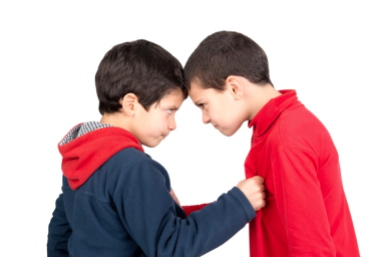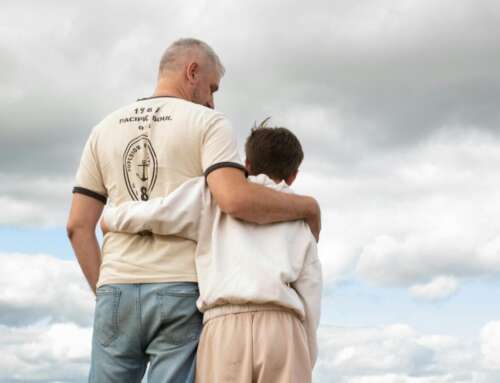 Conflict is a part of everyday life in schools. According to research teachers report that conflict behaviour is increasing and a threat to effective learning. When children learn constructive conflict resolution skills, conflict can become an opportunity to learn more about themselves, others and create harmonious schools. Just as children come to school with a broad range of reading and writing abilities so too do they arrive with an extensive range of understandings or skills of how to deal with conflict.
Conflict is a part of everyday life in schools. According to research teachers report that conflict behaviour is increasing and a threat to effective learning. When children learn constructive conflict resolution skills, conflict can become an opportunity to learn more about themselves, others and create harmonious schools. Just as children come to school with a broad range of reading and writing abilities so too do they arrive with an extensive range of understandings or skills of how to deal with conflict.
So, what are the key problems with conflict in schools and how can we aim to solve them?
Three Key Problems of Conflict
1. Lack of clear skills – Many children lack a confident and constructive approach to deal with conflict. Without these skills children are often repeating problem behaviours.
2. Stress – Strong emotions from conflict may lead to children experiencing stress; for example, in the form of a racing heart, feeling sick, muscles tensing, change of appetite, poor sleep, moodiness, not wanting to go to school or self-harming behaviours.
3. Poor academic achievement – Children who experience conflict are far less prepared to focus on learning, work cooperatively with others, retain information or concentrate on tasks set, resulting in reduced academic achievement.
Three Key Solutions for Conflict
1. Implement a whole school skills and language based approach to conflict resolution – train the whole community in strategic skills and language to resolve conflict where adults can teach, model and encourage implementation. This is an educative response rather than a punitive one (Dr Sullivans, 2014).
2. Equip children with resiliency skills – equip students with self-awareness and self-management skills where they learn to understand their body cues and overcome challenges cognitively and behaviourally.
3. Train mentors in the school – older children are trained in the school to mediate between younger students who have conflict. This creates a school that is a supportive and cooperative community; this flows over to happier and engaged students, and better academic success.
It’s Everyone’s Responsibility
Dealing with conflict should not be an assumed skill. Students need specific training to equip them with an understanding, skills and simple constructive language. Primary school aged children are at an ideal age to be taught these skills. Specific programs that focus on a whole school universal approach, build resilience and encourage peer to peer support not only impact the culture of the school creating a more harmonious, creative and safe environment, but also empower students for life.
– Jocelyne Chirnside MEd (Hons), Dip T JP
Jocelyne is the founder of EMPOWERING Life Skills and the creator of the BRIDGE BUILDERS program, a strategic, evidence based conflict resolution program for the whole school community. Jocelyne has worked in over 70 rural and city, state, private and Catholic schools as a trainer, speaker, resource developer, researcher and author.







Leave A Comment